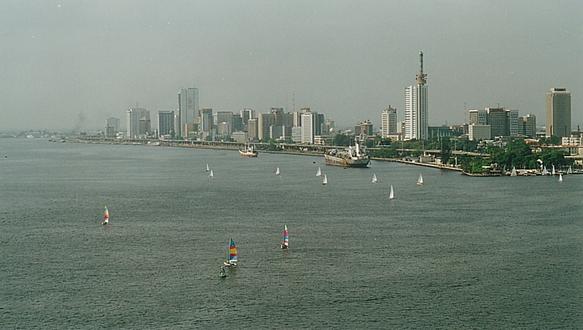Africa is modernizing faster than anyone could have ever imagined. African life expectancy has increased an astonishing eight years in the last decade, mostly due to technological leaps in medicine and health services. Africa’s largest city, Lagos, is attracting international resources, and has become a destination for venture capital, due to the success of companies like Andela software, Vconnect and Sliide AirTime that are headquartered there. Progress is storming African consciousness. From Dakar to Nairobi, and Accra to Cape Town there is an investment and free market fever on the once Dark Continent that is now beaming with light.
But along with all of this growth and technology has also come problems with urban swelling and pollution. African cities, like Lagos, are struggling mightily with overpopulation problems. A huge influx of people has brought along poverty, poor sanitation, pollution and perhaps the worst traffic in the world. For many of the residents in Lagos, traffic congestion is a symbol of the country’s inability to keep up with its rapidly growing population.
Technology has therefore become a double-edged source—and management is necessary. Officials need high-quality, lower cost equipment from companies like Machinery Network to efficiently address some of the major pollution issues without contributing to it. Even at a lower scale, using more eco-friendly machines can help prevent some of the long-term pollution happening in the country.
The city’s population currently is listed at over 14 million but local officials estimate there are now as many as 18 million living in Lagos and environs. But officials in Lagos are optimistic and feel that the city’s strength lies within its diversifying population and that with the stabilization of the country’s oil and gas resources, basic government services, such as pickup up trash, fixing roads and sensible development should improve and, thus, traffic problems will be addressed.
There’s also been improvement in Lagos’ rapid transit plans with bus lanes now aiding traffic flow, particularly to, from and within the Victoria Island district where new malls and shopping experiences are proliferating.
What About the Noise?
Along with traffic and overcrowding, there is another pollution problem facing the citizens of Lagos, and that is the enormous amount of noise that afflicts this city. It has to be one of the loudest places on Earth. If you’ve ever sat in the back of a C-130 Hercules aircraft while it’s dropping supplies off its large rear cargo ramp, you have some idea of the volume of the din you will hear blasting on a typical Lagos street.
Most of the sources of this urban racket are the loudspeakers employed by the numerous mosques, churches and nightclubs that dot the city’s neighborhoods. They all seem to be advertising salvation, redemption, or a damned good time simultaneously, non-stop – almost like a competition for resolving which organization has the biggest speakers and the most powerful amplifiers.
The local government has done studies determining that noise levels can affect the amount of violence and health problems experienced by residents, so there are significant steps being taken to mitigate noise levels in Lagos by the year 2020.
Air Quality in Lagos
The amount of air pollution in Lagos is actually not as bad as four other cities in Nigeria. The number one worst air polluter in all of the country, and Africa and, probably, the rest of the world is booming, southern port city of Onitsha, according to the World Health Organization (WHO). Onitsha is followed closely by three other Nigerian cities named by the WHO as top pollution centers – they are the transport hub of Kaduna, in the North, followed by the cities of Aba and Umuahia, which are both trade centers in Southern Nigeria.
Lagos’ air quality for most of the year is not nearly as bad as Onitsha, but it can be overwhelming, especially when the dust-filled Harmattan winds blow, usually in December and January, and sometimes even as late as March. Of course the main air quality culprit in Lagos are the millions of automobiles, idling in traffic that hardly moves. But there are also pollution issues from reliance on solid fuels for cooking, burning waste and exhaust from factories that are not properly equipped with pollutant afterburners.
Another problem stems from Lagos’ unreliable electrical grid. There are so many brownouts and blackouts that most residents are forced to rely upon individual, gasoline generators for their electrical needs. These portable power plants are stuffed haphazardly into nooks and crannies all over the city, not only polluting the air but adding to the severe noise pollution as well.
If the residents of Lagos hope to actually enjoy the fruits of the technological development and resulting investment that is attempting to flourish in their city, they must address these problems with infrastructure resolutely and with the utmost dispatch.

